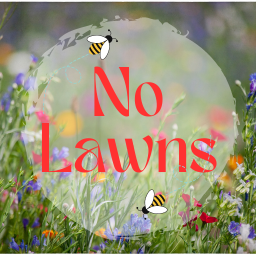After his arguments failed to convince bylaw officers, Ruck took his case to court. Legal precedent supports naturalised gardening in Ontario, where in 1996 a court ruled that Sandy Bell, a Toronto gardener, had the right to express her environmental beliefs through gardening, overturning a fine issued to her under the city’s weeds and grass bylaw.
But Ruck, who represented himself, lost his case on procedural grounds after arguing that the city had applied the bylaw unfairly and arbitrarily. Now on the hook for the municipality’s legal bills of $6,000 (£3,450), he has filed an appeal.
Damn that sucks
I think might be a little more too this.
Mississauga is pretty clear one two things: grass no longer than 20cm and a ban on 25 specific nuisance weeds.
So just don’t grow grass or those 25 weeds?
Here are the “nuisance weeds”:

Black dog strangling vine
Named like an RPG miniboss.
Im with you Ruck.
Get it, ruck.
Cities need reeducation to battle NIMBYs against this crap. In my region you see this all the time and he’s right: the application of the law is unequal. Cities will cite people with houses in poor and working class neighborhoods before citing anyone in rich neighborhoods with the same thing.
This is probably resultant from two things:
-
the city seeing poorer neighborhoods as projects to fix. They see the possible decline property values and thus tax.
-
NIMBYs
-
I wish I could not mow my lawn. We have a million clover flowers and so many pollinators just chilling there and suddenly brummmmmmmmmmmm giant mower monster eats them. Why, what’s the point?
It’s annoying AF, but I’ve started waiting until my lawn is approaching 8" (where the city starts getting pissy) to let everything try to go through as much of the lifecycle as it can before I have to chop it all down.
This is what I’m trying to do. I have one of those neighbors who mows once a week who will probably complain.






